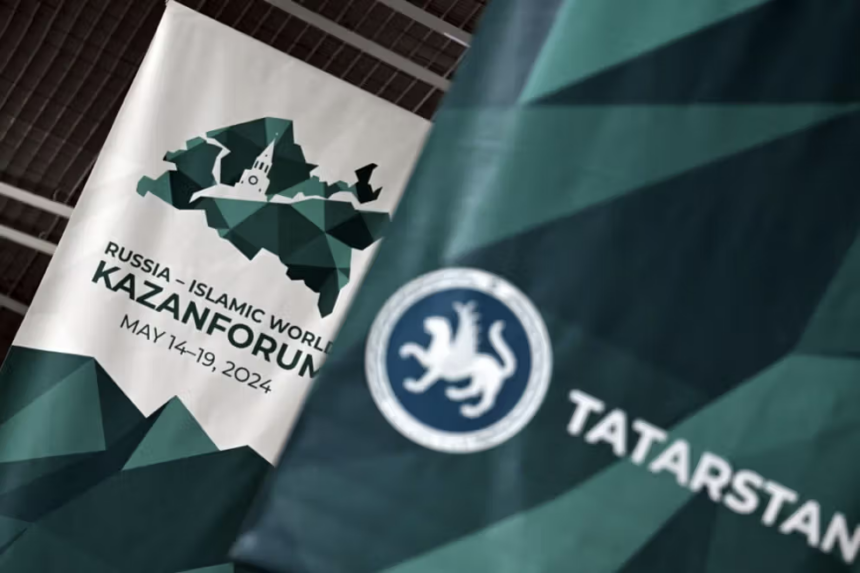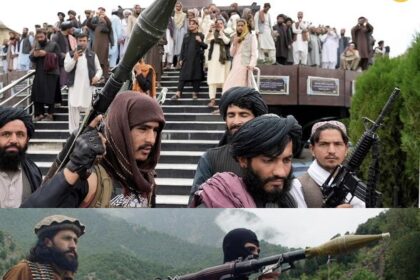RASC News Agency: In a striking sign of shifting international dynamics, a delegation of Taliban officials is set to participate in the 16th Russia–Islamic World Economic Forum (Kazan Forum) in Tatarstan’s capital, marking the group’s most prominent public appearance in Russia since its removal from the country’s list of terrorist organizations. The Taliban’s attendance, led by acting Minister of Industry and Commerce Nooruddin Azizi, underscores Moscow’s evolving policy toward Afghanistan and raises serious concerns among rights advocates and political observers about the growing normalization of an extremist regime. According to Russian state media, the Taliban delegation includes representatives from several of the group’s ministries and will take part in discussions focused on expanding economic and trade cooperation between Russia and Taliban-ruled Afghanistan. The Kazan Forum, running from May 13 to 18, is one of the largest economic gatherings aimed at fostering ties between Russia and the Islamic world. This year’s agenda includes panels on digital transformation, trade integration, and joint investment ventures.
On the sidelines of the forum, a private summit between Russian business leaders and Taliban officials is planned, coordinated in part by Zamir Kabulov, Russia’s Special Envoy to Afghanistan and a key architect of the Kremlin’s new Afghanistan strategy. Kabulov has previously defended engagement with the Taliban as a pragmatic necessity despite the regime’s brutal track record. The economic summit will be jointly chaired by Russian Deputy Prime Minister Alexey Overchuk, lending it further political weight. Additionally, a trade exhibition of products labeled as “Afghanistani-made” will be showcased to highlight what organizers describe as “emerging commercial potential.” However, critics point out that most of these products are either controlled by Taliban cronies or produced in regions where independent oversight is virtually non-existent.
The Taliban’s official presence at an international forum of this scale was made possible only after a controversial ruling by Russia’s Supreme Court earlier this year, which removed the group from its formal list of banned terrorist organizations. That legal decision enacted without broad public consultation or international coordination was immediately followed by intensified diplomatic contacts and the expansion of Russian-Afghanistani trade initiatives under Taliban rule. This development signals a bold recalibration in Moscow’s foreign policy: from cautious condemnation to quiet legitimization. Russia, eager to expand its influence in Central and South Asia amid deteriorating ties with the West, appears willing to overlook the Taliban’s draconian governance in favor of geopolitical expediency. By opening doors for Taliban officials at high-level summits, Moscow not only undermines decades of international consensus regarding terrorist engagement, but also emboldens an authoritarian regime that has methodically dismantled civil liberties within Afghanistan.
Since their violent return to power in August 2021, the Taliban have imposed sweeping restrictions on women, silenced independent media, persecuted minorities, and institutionalized religious extremism. Their regime remains unrecognized by the United Nations and the vast majority of sovereign states. Yet appearances at international economic forums provide them with a veneer of credibility they have not earned through reform or accountability. “The Taliban’s attendance at Kazan Forum is not a sign of progress it is a diplomatic failure,” said a senior Afghanistani human rights activist based in exile. “It rewards a regime that has closed girls’ schools, banned female employment, and reintroduced public punishments as governance. This is not diplomacy it is appeasement dressed as pragmatism.”
Russia’s strategic outreach to the Taliban also raises questions about the long-term implications for regional security. With Afghanistan increasingly becoming a safe haven for extremist networks under Taliban oversight, the normalization of their rule risks triggering further instability across Central Asia. Critics warn that Russia’s short-term economic interests may come at the cost of enabling the entrenchment of an ideologically repressive regime on its southern flank. As the Kazan Forum proceeds under the banner of economic cooperation, it simultaneously casts a long shadow over the moral and political cost of engaging with regimes that trample human rights with impunity. For the Taliban, the forum offers a stage; for the international community, it poses a question: how far will the world go in trading principles for partnerships?






